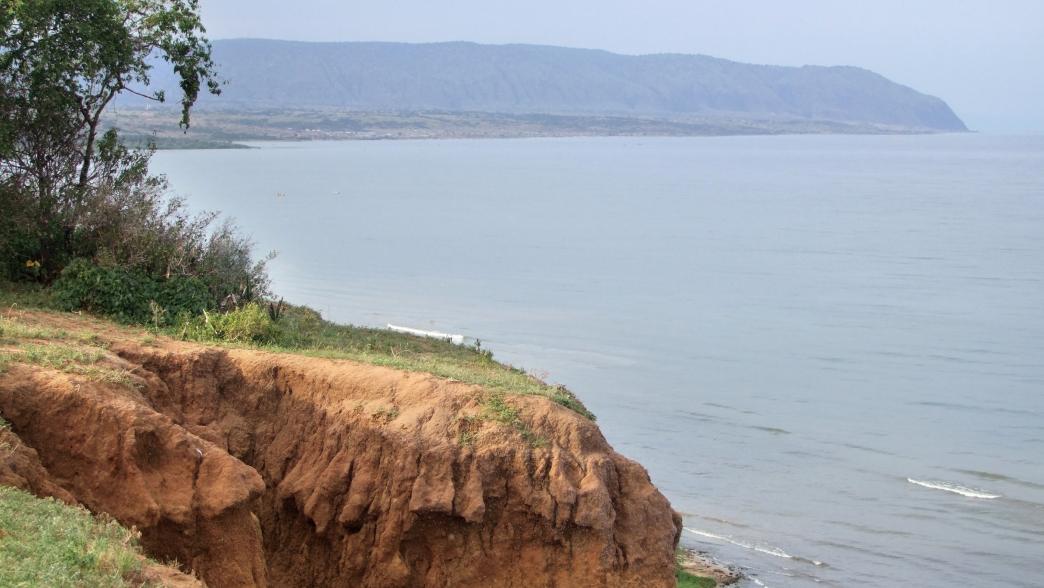
Uganda’s Oil: Seven Recommendations After the Final Investment Decision
Since the discovery of commercially viable oil deposits in 2006, Uganda has experienced a long and rocky road to reach a final investment decision (FID) on its exploitation, with disagreements over the use of the oil, delays in negotiations, tax disputes with oil companies and overoptimistic targets for the start of production, with first oil initially expected in 2009.
On Tuesday 1 February 2022, the project’s joint venture partners, TotalEnergies, China National Offshore Oil Corporation (CNOOC) and Uganda National Oil Company (UNOC), announced that a final investment decision (FID) for Uganda’s Lake Albert development project was reached, a major step in the country’s oil sector. The project covers two upstream blocks and the development of an export oil pipeline, the East African Crude Oil Pipeline (EACOP), which will transport most of the oil through Tanzania to then be shipped overseas. The deal will see investments of about US$10 billion in the development of crude oil production in East Africa, with first oil expected in 2025.
With the FID now announced, Uganda’s government has a few pending critical issues it will need to take into consideration if oil resources are to benefit current and future generations of citizens.
Getting the oil project financed
While FID has been announced, financing is yet to be secured for the development of EACOP, whose estimated cost has jumped from $3.5 billion to $5 billion due to increased costs as a result of production and transport disruptions caused by the COVID-19 pandemic, as well as an estimated additional $4 billion needed for the refinery and refined products pipeline.
For this reason, the joint venture partners in the Lake Albert project and the pipeline have turned to financing institutions. However, most institutions, including the International Finance Corporation (IFC), are hesitant to invest in the project due to the risks associated with the energy transition, as well as environmental and social concerns. The Ugandan government may instead have to turn to non-concessionary loans to finance their share in the joint venture, which could turn out to be expensive in the long run and may affect the returns from the project.
Uganda’s 15 percent equity in the upstream will be financed by the production share, but the Ugandan government needs to secure resources for the 15 percent shares in EACOP as well as the planned 40 percent equity in the refinery. Uganda’s government has fortunately already considered the size of the stake in the refinery it will take and is also already weighing options for allocating some of the shares to East Africa Community (EAC) partners and other institutional investors.
Taking into account investments in renewable energy
At the same time, a Memorandum of Understanding (MoU) was signed between TotalEnergies E&P and the Ministry of Energy and Mineral Development of Uganda for the development of large-scale renewable energy projects, confirmation of the reality of the energy transition, which may affect future oil prices. If the government invests substantial resources in the oil sector, lower returns caused by the risks associated with the energy transition may prevent these investments from delivering a viable return in the long term. The consequence is that some of the investments are likely to become stranded. If the resources are borrowed, it will be difficult for Uganda to repay these loans and this may result in default.
Ensuring long-term benefits from the oil sector
To reach the FID, the Ugandan government had to grant generous exemptions to the international oil companies and to key contractors involved in the project under the EACOP Act (2021). The government also facilitated the sale of Tullow Oil’s stake in Uganda’s oil sector. These compromises will have implications for the optimal design of the revenue management framework and may affect the amount of revenue that would accrue to the government from oil operations.
In addition, the government granted UNOC legal and beneficial ownership of the resources from crude oil operations to enable the company to meet the government’s financial obligations for the oil sector. While this is not inherently a challenge, an NRGI study on national oil companies (NOCs) underlined the importance of accountability mechanisms to ensure that resources under the control of NOCs are managed effectively.
While oil prices can be volatile, with the FID reached and a break-even price of around $49, the project is now very likely to go ahead. However, the risks linked to the energy transition may impact how much revenue the project will make as prices are expected to fall over the lifetime of the project. If the world meets the Paris Agreement, the Climate Policy Initiative estimated that the Lake Albert project may produce only 81 percent of its reserves, resulting in lower revenues and an early end to production.
Uganda is also due to receive royalties from oil operations. NRGI estimates that royalties of 12.5 percent on average will amount to about $10.5 billion, based on crude oil price of $60 per barrel, with designated oil-producing local governments expected to receive about $630 million over the 25-year lifetime of the project, based on the same crude oil prices of $60 per barrel.
However, the government is yet to designate the local governments that will benefit from royalties. This may likely affect their preparedness to finalize development strategies and benefit from accrued oil revenues.
In order to translate the aspirations of the country into concrete revenues and long-term benefits for the country and its people from oil production, NRGI makes the following seven policy recommendations:
- Strengthen transparency and reporting provisions in the Public Finance Management Act (2015) to ensure that UNOC is managed in a transparent and efficient manner.
- In addition to the fiscal rules set out in the Charter of Fiscal Responsibility (CFR), develop a longer-term strategy to manage oil revenues, particularly in light of the long-term shift away from fossil fuels.
- Undertake periodic reviews of tax exemptions and incentives that may reduce government revenues from taxation of the oil and gas sector.
- Support the capacity of the private sector to engage in the oil sector to enhance backward linkages.
- Publish the list of local governments that will benefit from royalties and support the finalization of development strategies to ensure that local governments benefit from revenues accrued to them from oil production.
- Review the level of stake equity and consider using less risky support to the refinery, such as sovereign guarantees.
- Manage public and political expectations as the oil project may take longer than expected for substantive oil money to flow into government coffers and before local community benefits can be realized.
Paul Bagabo is senior officer at the Natural Resource Governance Institute (NRGI). Moses Kulaba is East Africa regional manager at NRGI.
Photo credit by PRILL via Shutterstock
Authors

Paul Bagabo
Senior Officer

Moses Kulaba
East Africa Regional Manager
